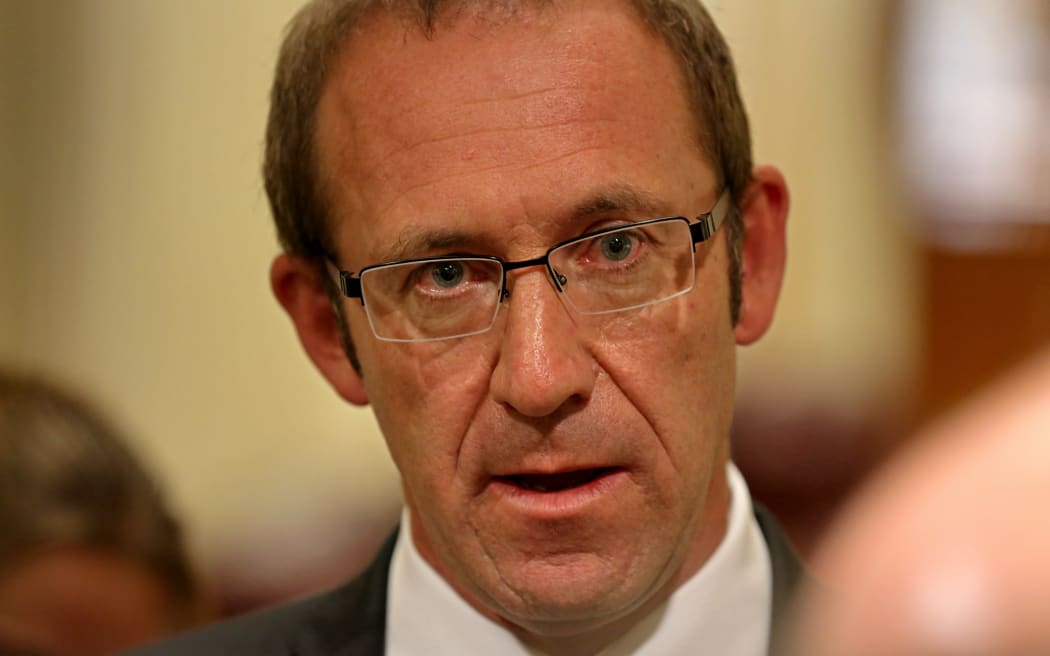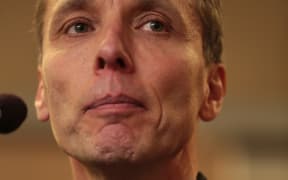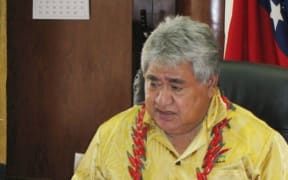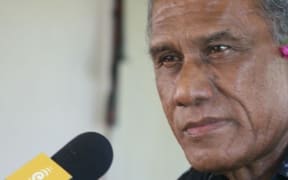The Prime Minister has come out fighting against further claims of illegal mass surveillance by New Zealand spy agencies.
Investigative journalist Nicky Hager is accusing the Government of spying on New Zealand's Pacific neighbours on an unprecedented scale, and passing that information on to the United States.
He said the Government Communications Security Bureau (GCSB) intercepted communications from countries such as Fiji, Tonga, Vanuatu and Samoa, and even nations as small as Tuvalu, Nauru and Kiribati.
Mr Hager said the scale of surveillance had grown in the past few years to what was now mass collection of data.
Labour Party leader Andrew Little said the revelations could damage the relationship between New Zealand and some of its closest regional allies.
"People expect our security agencies to do their job of targeting information and issues that are a threat to us but not to do a wholesale collection of all electronic information from our south Pacific neighbours. So I think our Foreign Minister and our Prime Minister have some questions to answer in that regard," he said.
United Future's leader Peter Dunne said it was hard to see how New Zealand agencies could assess whether the information passed on was legal, or relevant.
"We seem to now be providing or have been providing this material unfiltered on a sort of one-way traffic basis to the NSA."
Green Party co-leader Russel Norman asserted the GCSB had been acting illegally.
"The GCSB has been collecting the data of all New Zealand citizens when they have been in the Pacific and and it means that the GCSB is clearly in breach of the New Zealand law which prevents them from collecting data on all New Zealand citizens."
He wanted Mr Key to confirm whether New Zealanders working and living in the Pacific had been spied on, or those with dual citizenship, which included the nations of Cook Islands, Tokelau and Niue.
"Unless the GCSB can demonstrate that they had an extremely sophisticated filtering system which was able to somehow determine that an email or a phone call came from a New Zealand citizen and hence was excluded from the vacuum cleaner - I think what we can pretty sure about it is that all our data went to the United States and went into their giant database."

Labour leader Andrew Little: "We know it has been a breach of privacy." Photo: RNZ / Alexander Robertson
Mr Little said it was impossible to see how the data of New Zealanders working or living in the Pacific, or those communicating with friends or family in the Pacific, could have been excluded.
"Certainly we know it has been a breach of privacy. It is a question of what mandate the security agencies have been given and whether the Prime Minister or any other minister has signed off on this and given them the authority to do so," he said.
In August 2013, as the new GCSB law was going through Parliament, Mr Key told reporters he would resign if any mass surveillance was carried out on New Zealanders.
"Yes, but the facts of life are it won't, it won't happen."
Today Mr Key rejected the assertion the revelations showed mass surveillance had been carried out.
"Firstly, some of the information was incorrect, some of the information is out of date, some of the assumptions made were just plain wrong. But we do have the GCSB and it is a foreign intelligence service and it does gather foreign intelligence that is in the best interests of New Zealand and protecting New Zealanders," he said.
But he refused to detail the activities of the GCSB.
"Well I'm not going to go, you know, through which particular areas we gather surveillance and why except to say, one, I am 100 percent assured and convinced that it is legal. Two, there were always very, very valid legal reasons and it is set out in the GCSB what those are."
Mr Hager said there would be more revelations over the coming days.
Venue change for news conference
The Prime Minister's news conference today was a second attempt.
One was due to be held at the University of Auckland but it was cancelled without notice and shifted to a later time at an Auckland hotel.
Mr Key was asked if a handful of protesters was a good enough reason to delay the news conference, and he said it was because of noise.
"I didn't really care about it but if you just wanted some yahoos sort of coming in and making a whole lot of noise, we could do it, but I don't think it'd be very conducive to a good press conference," he said.
The first news conference was due to be held in a small lecture theatre where a security guard was already posted, and reporters waiting there did not hear the protesters.
A group calling itself "Reclaim University of Auckland" said on its Facebook page it was behind the protest.




